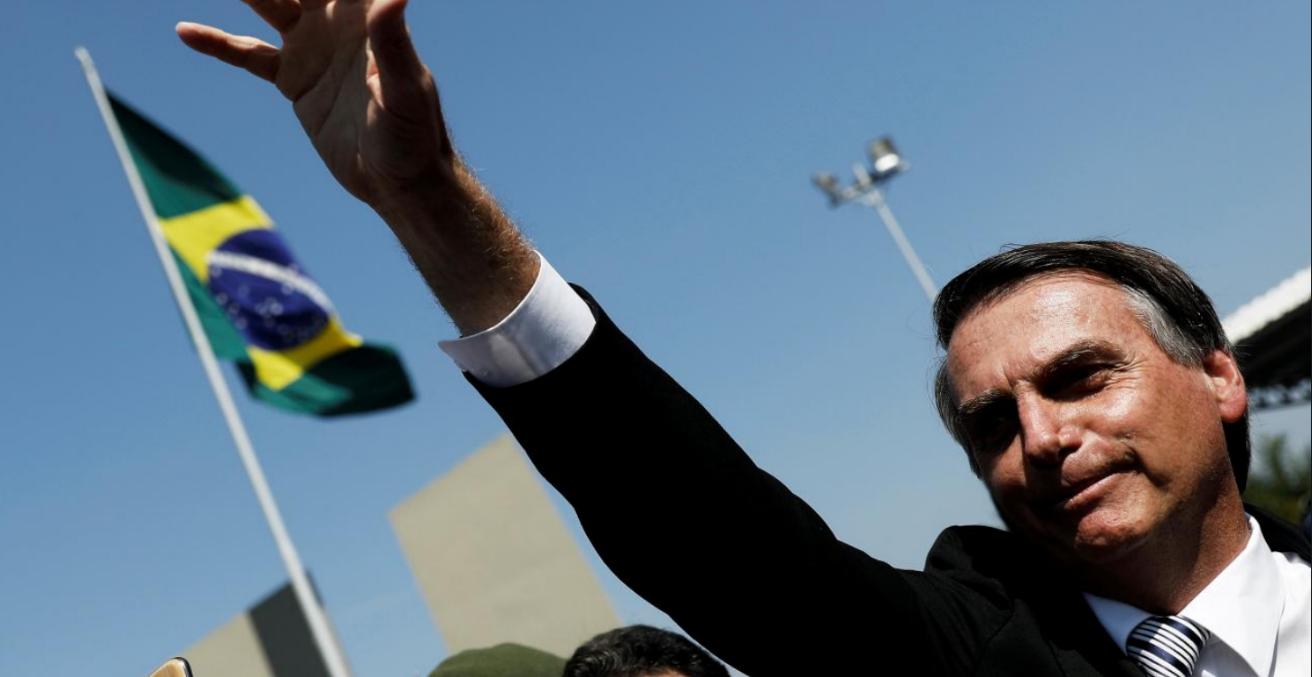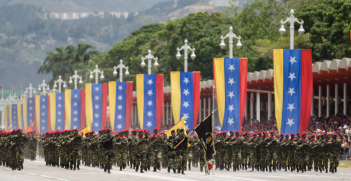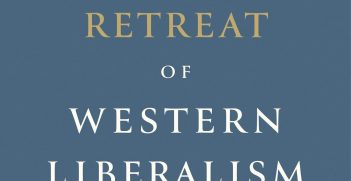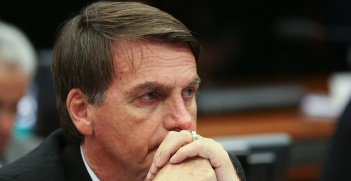What to Expect of Brazil’s Foreign Policy under Bolsonaro

With Bolsonaro’s victory, Brazil is set to align closer to Trump, threatening globalism and multilateralism and hindering progress on climate change.
The election of Jair Bolsonaro represents the end of the process of transition from left-wing Workers’ Party (PT) governments to the conservative far-right in Brazil. Domestic prospects look bleak at best for human rights and democracy, and the change of tone on foreign policy promised by Bolsonaro suggests that his election will have a solid echo outside Brazil’s borders. Based on what was discussed during the campaign, we already have insights into what Bolsonaro’s foreign policy will look like.
Making Brazil ‘Great Again’, looking to the North
In the short section dedicated to foreign policy in Bolsonaro’s presidential programme, a clear emphasis is put on bilateral relations. Bolsonaro’s top pick for Minister for Foreign Affairs is rumoured to be Ernesto Fraga Araújo, currently the head of the USA and Canada Department in Itamaraty, the Brazilian Ministry of Foreign Affairs. He is seen as someone who shares Donald Trump’s world views and would shift Brasilia’s approach towards countries such as the United States and Israel. In his program, Bolsonaro states his willingness to “stop praising murderous dictatorships and despising or even attacking important democracies such as USA, Israel or Italy.” He has promised to dedicate his first visit to Israel and his second to the US and to follow Trump’s lead in moving the Brazilian embassy to Jerusalem. Additionally, Bolsonaro has declared his reluctance to recognise Palestine as a country, even though it has officially been recognised as such by Brazil since 2010.
Bolsonaro has manifested his intention to develop an alignment with the US, possibly establishing a “carnal relationship” with the Trump Administration in the way that former Argentinean President Carlos Menem did in the 1990s. An alignment with the US would not be necessarily negative for Brazil or South America, following countries like Chile, Argentina and Colombia. However, it will have an impact in the balance of power in the region, as Brazil has historically in recent years positioned itself as an autonomous power, able – especially under Lula da Silva’s government – to intermediate between left-wing and right-wing governments in the region.
Also following Trump’s foreign policy and discursive style, during his campaign Bolsonaro criticised Brazil’s relations with China, suggesting that “China is not buying in Brazil; it is buying Brazil” and asking “Are you going to leave Brazil in Chinese hands?” This will create tensions in Brasilia’s relation with its current top trading partner and co-member of the BRICS grouping (Brazil, Russia, India, China and South Africa).
A threat to multilateralism and globalism
Bolsonaro’s government could put to an end – or at least, a hold – on the traditional international role of Brazil: as an autonomous regional power, an active voice of the South in arenas like the G20, a leader during Lula’s time in the United Nations and now BRICS, and as an avid supporter of multilateralism.
Back in April, Bolsonaro had reportedly announced his intention to leave the UN if elected. It was later explained that he had just meant to say that he wanted out of the UN Human Rights Council (UNHRC), depicting the institution as a “useless” meeting by a “group of communists, of people who don’t have any sort of commitment towards Latin America at least.” Brazil would join the Trump Administration in this – two of the biggest democracies in the world – weakening the UNHRC even more.
In a similar vein to Trump’s criticism of the North American Free Trade Agreement, Bolsonaro has targeted Mercosur, an organisation founded by Brazil, Argentina, Paraguay and Uruguay in the 1990s, suggesting that Brasilia’s membership could also be reconsidered. Leaving Mercosur would most probably be the end of the organisation, which has struggled to remain relevant. It is a decision that would have negative impacts on the rest of the member countries as Brazil is one of the two economic pillars of the organisation with Argentina and is especially critical for the small and more dependent members such as Uruguay. Along with this, if Brazil is not able to overcome its political instability, polarisation and economic struggles, not only South America but the world’s economy will face negative consequences, considering that Brazil is the 9th largest economy in the world.
A catastrophe for progressive climate change and environmental policies
Bolsonaro had announced that, if elected, Brazil will withdraw from the Paris Agreement. On Thursday, he scrapped that promise. But that is not the only impact his presidency might have on climate change mitigation and adaptation; one quote is enough to summarise his approach: “I will let miners strip the Amazon.”
Abolishing the Environment Ministry, building a highway through the Amazon, opening Indigenous territories to mining and banning international NGOs such as Greenpeace and WWF, are some of the other promises the presidential candidate has made. He would also, if allowed, open more power plants in the Amazon despite environmental concerns and the displacement of Indigenous communities.
These policies could rapidly hasten deforestation in the world’s largest rainforest at a time when the scientific community has underlined that halting deforestation should be on an equal footing with reducing emissions to avoid a temperature rise of over 1.5 degrees.
All the signs suggests that, under Bolsonaro’s government, Brazil will join Donald Trump as a critic of globalism and embrace nationalism. As in the case of the US, Bolsonaro will face institutional constraints. However, an extremely polarised Congress and a Ministry of Foreign Affairs that has experienced a decline in its historical role in the definition of Brazil’s foreign policy since Lula da Silva’s government may not be able to stop or soften this abrupt foreign policy shift.
Diego Leiva is a PhD Candidate at the School of Government and International Relations at Griffith University.
Mélodie Ruwet is a research assistant at Griffith University. She holds a Masters in International Relations from Université Catholique de Louvain in Belgium.
This article is published under a Creative Commons Licence and may be republished with attribution.





